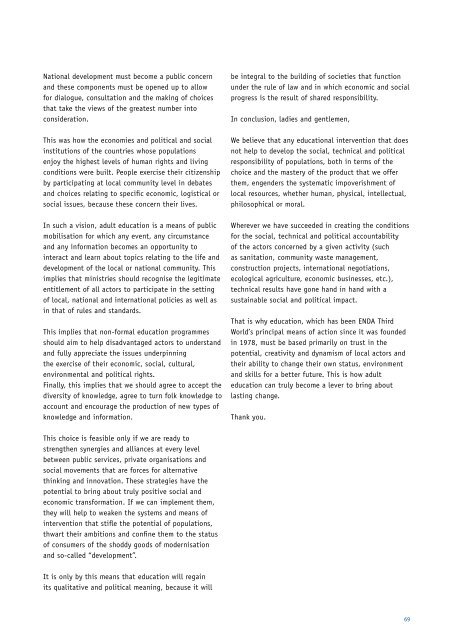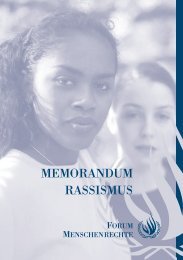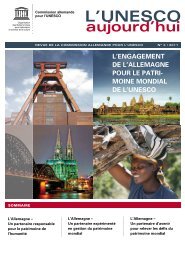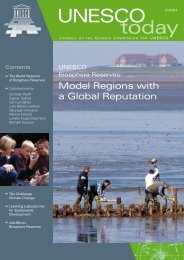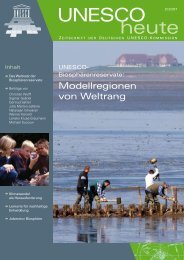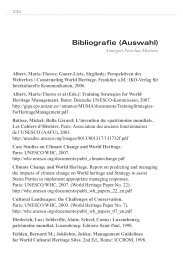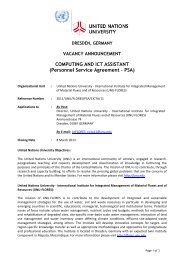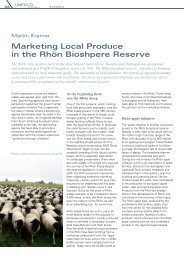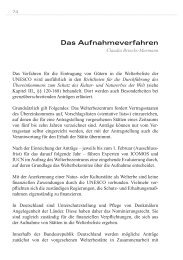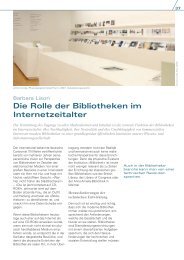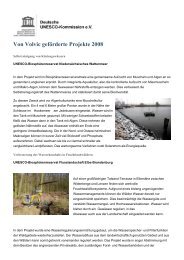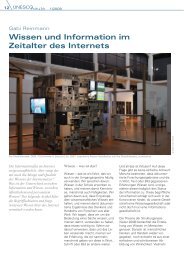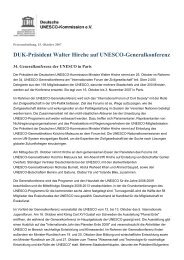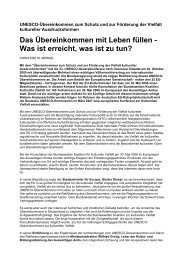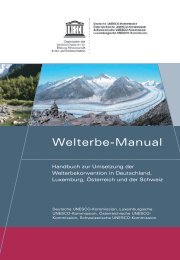CONFINTEA VI, final report - Unesco
CONFINTEA VI, final report - Unesco
CONFINTEA VI, final report - Unesco
You also want an ePaper? Increase the reach of your titles
YUMPU automatically turns print PDFs into web optimized ePapers that Google loves.
National development must become a public concern<br />
and these components must be opened up to allow<br />
for dialogue, consultation and the making of choices<br />
that take the views of the greatest number into<br />
consideration.<br />
This was how the economies and political and social<br />
institutions of the countries whose populations<br />
enjoy the highest levels of human rights and living<br />
conditions were built. People exercise their citizenship<br />
by participating at local community level in debates<br />
and choices relating to specific economic, logistical or<br />
social issues, because these concern their lives.<br />
In such a vision, adult education is a means of public<br />
mobilisation for which any event, any circumstance<br />
and any information becomes an opportunity to<br />
interact and learn about topics relating to the life and<br />
development of the local or national community. This<br />
implies that ministries should recognise the legitimate<br />
entitlement of all actors to participate in the setting<br />
of local, national and international policies as well as<br />
in that of rules and standards.<br />
This implies that non-formal education programmes<br />
should aim to help disadvantaged actors to understand<br />
and fully appreciate the issues underpinning<br />
the exercise of their economic, social, cultural,<br />
environmental and political rights.<br />
Finally, this implies that we should agree to accept the<br />
diversity of knowledge, agree to turn folk knowledge to<br />
account and encourage the production of new types of<br />
knowledge and information.<br />
This choice is feasible only if we are ready to<br />
strengthen synergies and alliances at every level<br />
between public services, private organisations and<br />
social movements that are forces for alternative<br />
thinking and innovation. These strategies have the<br />
potential to bring about truly positive social and<br />
economic transformation. If we can implement them,<br />
they will help to weaken the systems and means of<br />
intervention that stifle the potential of populations,<br />
thwart their ambitions and confine them to the status<br />
of consumers of the shoddy goods of modernisation<br />
and so-called “development”.<br />
It is only by this means that education will regain<br />
its qualitative and political meaning, because it will<br />
be integral to the building of societies that function<br />
under the rule of law and in which economic and social<br />
progress is the result of shared responsibility.<br />
In conclusion, ladies and gentlemen,<br />
We believe that any educational intervention that does<br />
not help to develop the social, technical and political<br />
responsibility of populations, both in terms of the<br />
choice and the mastery of the product that we offer<br />
them, engenders the systematic impoverishment of<br />
local resources, whether human, physical, intellectual,<br />
philosophical or moral.<br />
Wherever we have succeeded in creating the conditions<br />
for the social, technical and political accountability<br />
of the actors concerned by a given activity (such<br />
as sanitation, community waste management,<br />
construction projects, international negotiations,<br />
ecological agriculture, economic businesses, etc.),<br />
technical results have gone hand in hand with a<br />
sustainable social and political impact.<br />
That is why education, which has been ENDA Third<br />
World’s principal means of action since it was founded<br />
in 1978, must be based primarily on trust in the<br />
potential, creativity and dynamism of local actors and<br />
their ability to change their own status, environment<br />
and skills for a better future. This is how adult<br />
education can truly become a lever to bring about<br />
lasting change.<br />
Thank you.<br />
69


